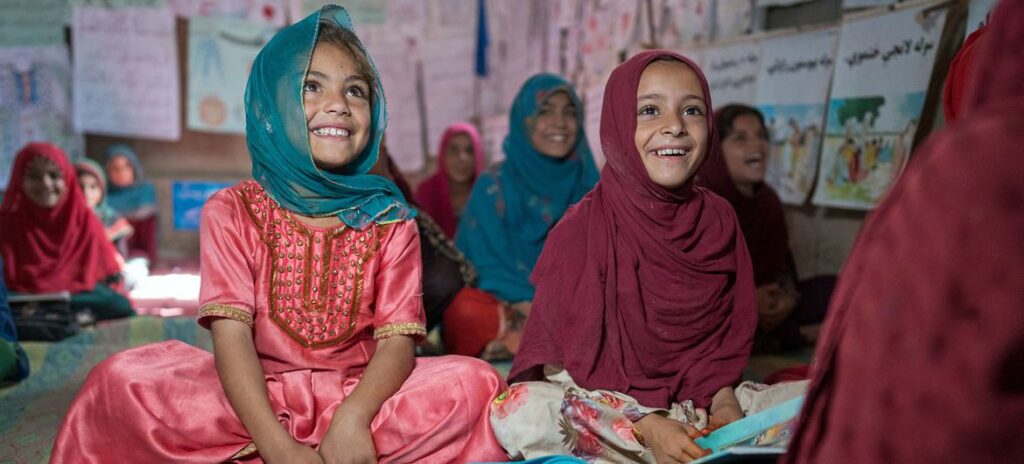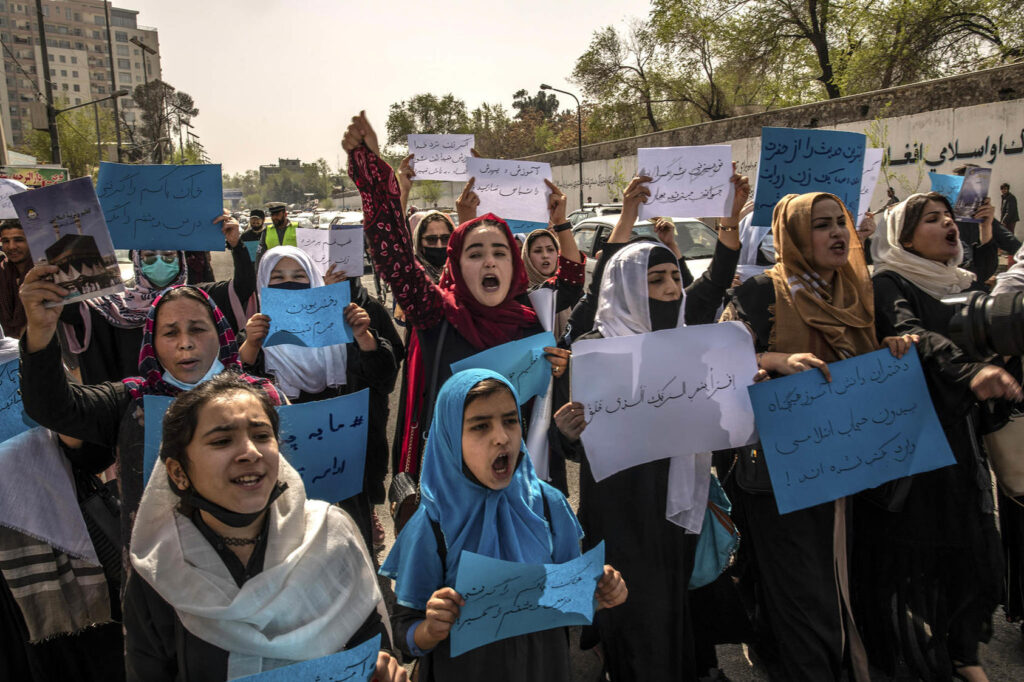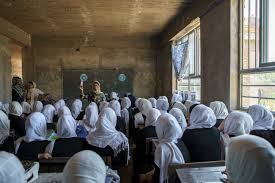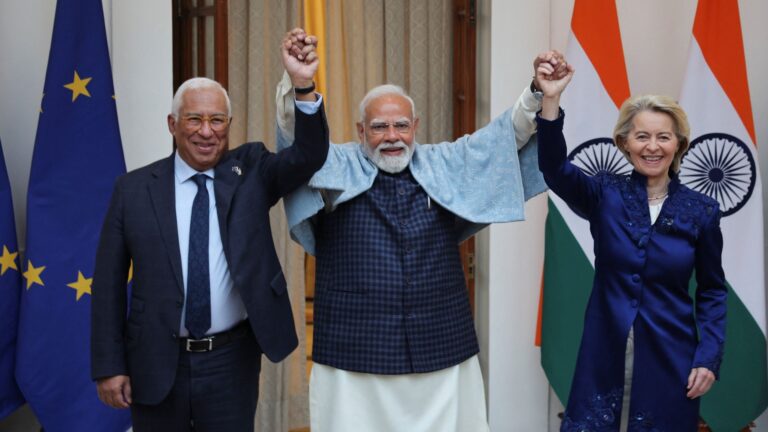
They can take away the classrooms, but they can’t take away the desire to learn. Even during hardship, the need to build remains. Despite Taliban ban on girl’s education, over 90 per cent of Afghans support girls’ right to learn
The Taliban’s Ban on Girl’s Education
September 17 marks three years since the Taliban banned secondary education for girls in Afghanistan, shortly after their return to power in August 2021. While the issue of Afghan girls’ secondary education has generated much discussion globally, governments and international institutions have yet to take meaningful action to reverse the Taliban’s ban. Girl’s education still remains a topic undiscussed.
The Taliban are systematically attacking women’s rights. By depriving girls of proper education, causing long-lasting harm to Afghanistan’s education system and its people. Banning girls beyond grade six from school is a misogynist attack that institutionalizes gender inequality in Afghanistan’s education system. The ban negatively impacts all areas of Afghan life. It has dire societal, developmental, and economic consequences for the country’s future. The harm increases with each day the ban remains in place.
Details of the Survey on support for Girl’s Education

The scale and severity of the women’s rights crisis continues to intensify. Afghanistan is the only country in the world where girl’s education is banned. Afghan Girls are prohibited to attend secondary school.
Yet, in a nationwide door-to-door survey of over 2,000 Afghans, more than nine in 10 supported girls’ right to learn . In a nationwide, door-to-door survey of more than 2,000 Afghans, 92 per cent said it was “important” for girls to continue their schooling, with support cutting across rural and urban communities.
Among rural populations, 87 per cent of men and 95 per cent of women supported girls’ schooling. While in urban areas the figure was 95 per cent for both men and women.
A United Nations survey released in August 2025 revealed that Afghans overwhelmingly support girls’ education, despite the Taliban’s comprehensive ban on it. The UN Women report, which included input from the UN Assistance Mission in Afghanistan (UNAMA) and the International Organization for Migration (IOM), indicates that communities across the country desire education for their girls.
Why Education is So Important to Afghans
Afghan families and society widely recognize that educating girls is essential for a stable, resilient, and progressive society.

- Emancipation from restriction: Education offers Afghan girls a chance to break free from cycles of poverty, early marriage, and oppression. For many, the denial of education is a form of disgrace they want to escape.
- Dignified citizenship: An educated person, regardless of gender, can live a life of dignity and be an engaged citizen. Providing girls with education promotes tolerance, understanding, and empathy, and equips them to advocate for equality.
- Building a resilient society: Female empowerment through education supports greater social cohesion and strengthens families and communities.
- Increased productivity: Educating girls and women enhances their earning potential. During a period of expanded access to education, every additional year of schooling for a woman increased her future wages by 13%.
- Boosts the national economy: Economic analyses show that banning girls’ education beyond the sixth grade can cause a catastrophic loss to the national economy. If all Afghan girls completed secondary education, it could boost the economy by at least $5.4 billion. The current ban is estimated to cost Afghanistan $1.4 billion annually.
- Cultivates a diverse workforce: Female education fosters a more diverse and inclusive workforce. With women historically serving as teachers, doctors, lawyers, and civil servants, barring them from learning severely compromises sectors like healthcare.
International Efforts to Support Girls’ Education
UNESCO has been strongly involved in supporting the education system in Afghanistan during the last 20 years. It includes running a successful literacy programme that reached over 600,000 youth and adults. 60% of the beneficiaries were women.
Since August 2021, UNESCO has shifted its interventions to ensure continuity of education through community-based literacy and skills development classes for over 25,000 youth and adults, including 60% women and adolescent girls in 20 provinces. Its advocacy campaign “Literacy for a Brighter Future” reached out to over 20 million Afghans to increase public awareness of the right to education for youth and adults, especially women and adolescent girls.
UNESCO is also working on an education data monitoring initiative. This is dome to ensure reliable data so that education partners channel funding to the most critical and unmet education needs.
As the Taliban tries to snuff out the light of education, the Afghan people continue to hold up the torch of hope. Reminding the world that the desire to learn cannot be extinguished. Their resilience is a beacon, guiding the way to a brighter future for Afghanistan, one educated girl at a time.
For more such informative articles stay tuned at The World Times.



